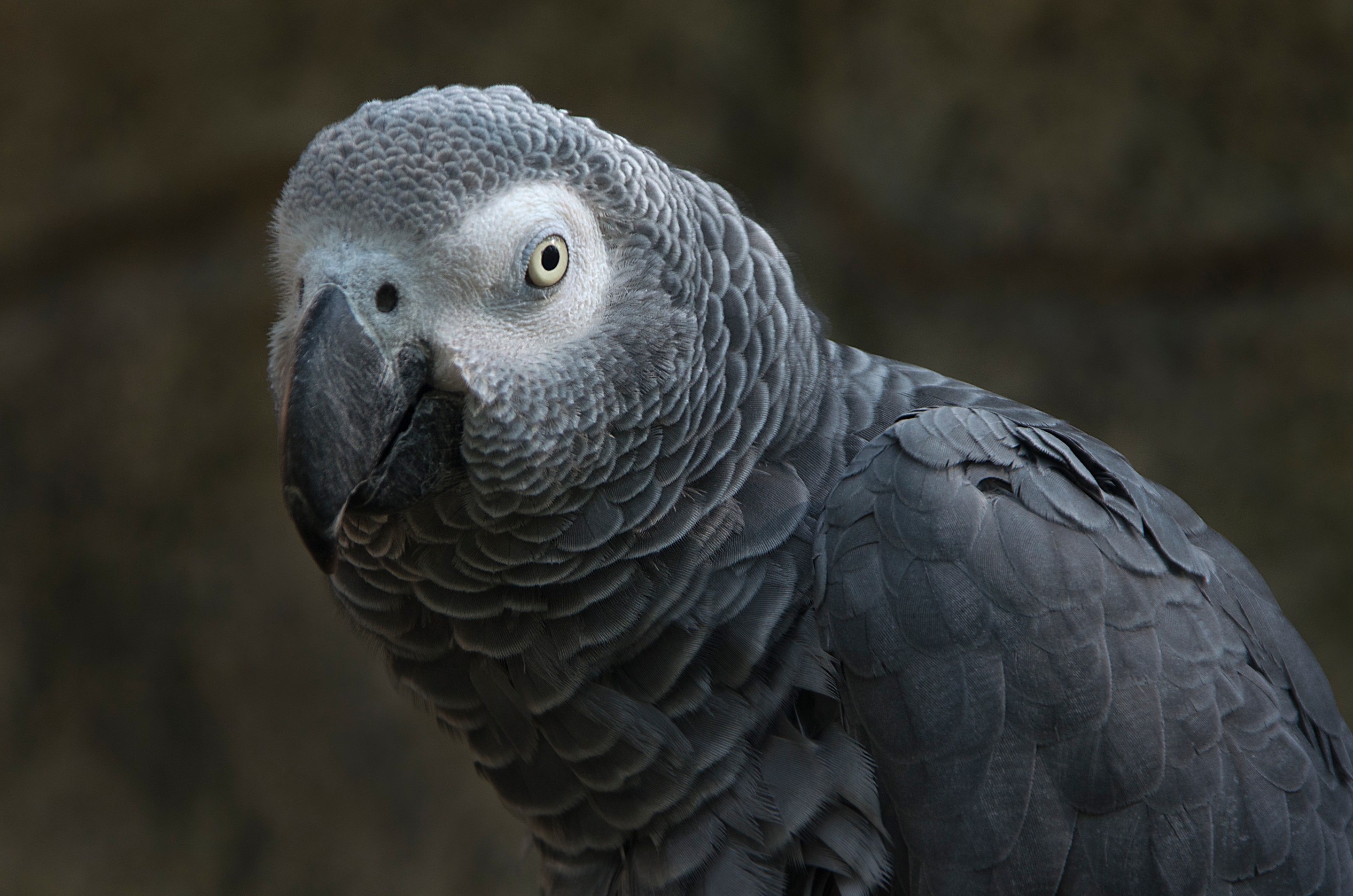Lincolnshire Wildlife Park has a problem. One week in 2020, early in the COVID-19 pandemic, the zoo welcomed five African grey parrots. Billie, Elsie, Eric, Jade, and Tyson each came from different homes but quarantined together before joining the zoo's larger flock. The five parrots soon began swearing at each other, especially "fuck off," which appeared to be an easy expletive to learn and squawk. But their repertoire was certainly not limited to "fuck" and its many derivatives. "I get called a fat t**t every time I walk past," Steve Nichols, the zoo's chief executive, told CNN Travel. (The censoring is CNN’s, not mine, nor, obviously, the parrots’.)
To keep the zoo a family-friendly space, staff took the parrots off public view and split them up, hoping the birds would lose interest in cursing with no other cursing birds around. Perhaps, surrounded by other, more naive members of their species, the parrots would learn more natural calls that African grey parrots use in the wild. But in the years since, Billie, Elsie, Eric, Jade, and Tyson have become de facto stars of the zoo, and now three newcomers—Captain, Sheila, and a second Eric—have doubled down on swearing.
Unfortunately for the nosy general public (me included) Nichols has declined to repeat many of the swear words popular among the parrots, although he told CBC Radio that the words could be sorted into three categories: light swear words kids might sometimes say, medium curse words most adults use, and a third tier of "very strong adult words," which Nichols described as "words that you don't really find pleasant in most situations." He acknowledged one of the swearing newcomers has the foulest mouth of the bunch. "Unfortunately, the latest three that came—two of those, especially one called Sheila—really, really goes onto the far end of the scale of what people can hear," Nichols said, in a statement that only rouses my curiosity in what, exactly, Sheila is saying. (Sheila, I promise I can take it! You would never have to censor yourself around me!)
Last week, Nichols announced a radical new strategy to change the culture of the eight swearing parrots: introduce them into a much larger flock, ideally such that their profane behavior is diluted and drowned out by the din of their neighbors. This strategy is anything but foolproof, and might actually seem engineered to spread the culture of cursing to a vast legion of innocents. "We could end up with 100 swearing parrots on our hands. Only time will tell," Nichols said.
Is there anything so wrong with 100 swearing parrots? If people decide to keep one of the most intelligent non-human animals—at least when measured by human standards of intelligence—in their homes as pets, clipping their wings to prevent the birds from their full powers of flight and ensuring a life isolated from other parrots, let alone from the large flocks they would have called home in the wild, not to mention the trauma that can come from an owner growing bored or uninterested in their pet and rehoming a creature that can live up to 80 years, then it seems only fair that the parrots derive some benefits from domesticity. A constant stream of high-quality food and access to healthcare are benefits, sure. But a social bird requires a great deal of mental stimulation, which can take many forms: puzzles, toys, and learning new words. Therefore each "fuck" and derivative profanity likely represented, for each particular parrot, a moment of learning and enrichment that has clearly stayed with the birds for years. Why deprive the birds of something they so clearly enjoy?
Parrots pick up words because they are vocal learners, able to hear sounds and imitate them. Like other vocal learning birds, they have a "core" song system in their brain, according to Audubon. But the song system of parrots has an extra component, called a "shell," that is totally unique to them, which may explain how they came to be such talented mimics. These vocal powers help parrots in the wild share information and integrate into the flock. Similarly, in captivity, parrots try to integrate into our households by speaking our language. Most of the time, the parrots do not know the meanings of many words as we might define them, but they may develop associations with certain words (the African grey parrot Waldo learned to say "banana crackers" to ask for his favorite snack) and may more easily learn sounds that provoke a big response in humans, such as swear words.
So in a way, Sheila's arsenal of curses does not represent her "foul mouth" or signify any of the perhaps odious meanings her adult language might carry. (For the record, if Sheila is saying slurs, stop her!!!) Rather, each "motherfucker" (or other redacted word) Sheila squawks is a record of a parrot building a relationship with a person who cared for her for a time before giving her up to the Lincolnshire zoo. Sheila and the other seven swearing parrots will never forget these swear words for the rest of the many decades they may live.
It bears mentioning that the non-swearing flock that the eight parrots now call community are not solely singing the calls of the wild. About 30 of the birds "make a beeping sound that a reversing lorry makes," Nichols told the BBC, and others imitate microwaves. Which seems more pleasing to any ear, human or parrot: a flock of parrots repeating swear words in an East Midlands accent, or a flock of parrots screeching like reversing trucks or microwaves? Let the families steer their children clear of the 100 Swearing Parrots Enclosure so they may avoid hearing words they surely, definitely have never heard before in their life. But let the parrots say "fuck," "bastard," and whatever the hell Sheila is saying.






